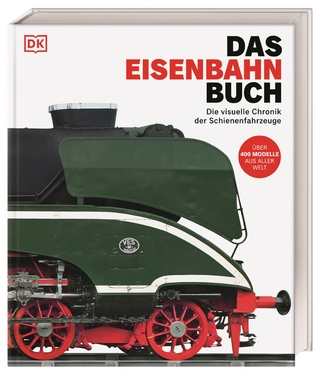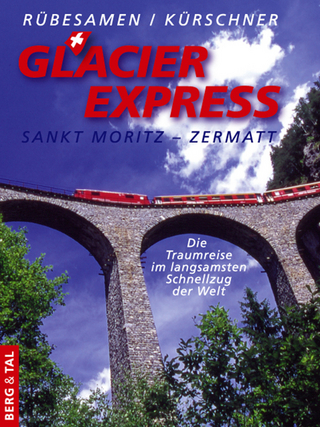
Walking Scotland's Lost Railways
Track Beds Rediscovered
Seiten
2019
Whittles Publishing (Verlag)
978-1-84995-403-7 (ISBN)
Whittles Publishing (Verlag)
978-1-84995-403-7 (ISBN)
This provides gently-graded track bed walks of over 375 miles, ranging from easy to adventurous. Complemented with specially-drawn maps and covers the South-Central Highlands, Fife, Clackmannan and Kinross and the Borders.
Scotland still has hundreds of miles of `dismantled railways', the term used by Ordnance Survey, and the track beds give scope for many walks. Some track beds have been `saved' as Tarmacadam walkway/cycleway routes while others have become well-trodden local walks. The remainder range from good, to overgrown, to well-nigh impassable in walking quality.
This book provides a handy guide to trackbed walks with detailed information and maps. It is enhanced by numerous black and white old railway photographs, recalling those past days, and by coloured photographs that reflect the post-Beeching changes. The integral hand-crafted maps identify the old railway lines and the sites of stations, most of which are now unrecognisable.
The `Railway Age' is summarised and describes the change from 18th century wagon ways and horse traction to the arrival of steam locomotives c.1830. The fierce rivalry that then ensued between the many competing companies as railway development proceeded at a faster pace is recounted. Although walkers may be unaware of the tangled history of the development of the railway system during the Victorian era, many will have heard of, or experienced, the drastic 1960s cuts of the Beeching axe. However, in more recent times Scotland has experienced a railway revival - principally in the Greater Glasgow area but with new stations and station re-openings elsewhere. The long awaited 30-mile Borders Railway from Edinburgh to Tweedbank, the longest domestic railway to be built in Britain for more than a century, is something on a very different scale. Early passenger numbers have exceeded expectations and towns served by the line have seen significant economic benefits.
Many railway enthusiasts cling to the hope that more lines will be reinstated. Meanwhile, those walks offer a fascinating and varied selection of routes that can fill an afternoon, a day or a long weekend - an ideal opportunity to get walking!
Scotland still has hundreds of miles of `dismantled railways', the term used by Ordnance Survey, and the track beds give scope for many walks. Some track beds have been `saved' as Tarmacadam walkway/cycleway routes while others have become well-trodden local walks. The remainder range from good, to overgrown, to well-nigh impassable in walking quality.
This book provides a handy guide to trackbed walks with detailed information and maps. It is enhanced by numerous black and white old railway photographs, recalling those past days, and by coloured photographs that reflect the post-Beeching changes. The integral hand-crafted maps identify the old railway lines and the sites of stations, most of which are now unrecognisable.
The `Railway Age' is summarised and describes the change from 18th century wagon ways and horse traction to the arrival of steam locomotives c.1830. The fierce rivalry that then ensued between the many competing companies as railway development proceeded at a faster pace is recounted. Although walkers may be unaware of the tangled history of the development of the railway system during the Victorian era, many will have heard of, or experienced, the drastic 1960s cuts of the Beeching axe. However, in more recent times Scotland has experienced a railway revival - principally in the Greater Glasgow area but with new stations and station re-openings elsewhere. The long awaited 30-mile Borders Railway from Edinburgh to Tweedbank, the longest domestic railway to be built in Britain for more than a century, is something on a very different scale. Early passenger numbers have exceeded expectations and towns served by the line have seen significant economic benefits.
Many railway enthusiasts cling to the hope that more lines will be reinstated. Meanwhile, those walks offer a fascinating and varied selection of routes that can fill an afternoon, a day or a long weekend - an ideal opportunity to get walking!
For over 15 years Robin Howie had a popular hillwalking column in The Scotsman and is the author of the acclaimed 100 Scotsman Walks. Dr. John McGregor is a historian, trustee of Glenfinnan Station Museum and author of several books including The West Highland Railway: plans, politics and people.
| Erscheinungsdatum | 26.07.2019 |
|---|---|
| Zusatzinfo | liberally illustrated with 22 maps and over 160 railway and walk photos colour throughout |
| Verlagsort | Caithness |
| Sprache | englisch |
| Maße | 170 x 240 mm |
| Themenwelt | Natur / Technik ► Fahrzeuge / Flugzeuge / Schiffe ► Schienenfahrzeuge |
| Sachbuch/Ratgeber ► Sport | |
| ISBN-10 | 1-84995-403-8 / 1849954038 |
| ISBN-13 | 978-1-84995-403-7 / 9781849954037 |
| Zustand | Neuware |
| Haben Sie eine Frage zum Produkt? |
Mehr entdecken
aus dem Bereich
aus dem Bereich
die visuelle Chronik der Schienenfahrzeuge
Buch | Hardcover (2024)
DK Verlag Dorling Kindersley
34,95 €
St. Moritz – Zermatt : die Traumreise im langsamsten Schnellzug der …
Buch | Hardcover (2023)
Verlag Berg & Tal
14,95 €
Betriebsmaschinendienst, Einsatz bei den Bahnbetriebswerken und …
Buch | Hardcover (2024)
EK-Verlag
54,00 €


